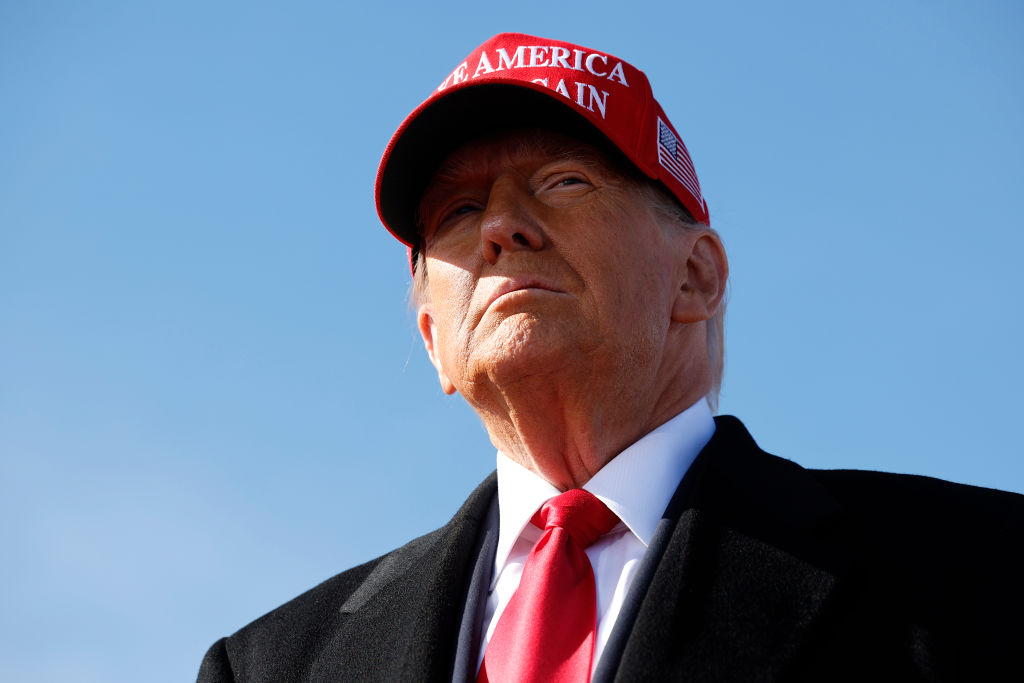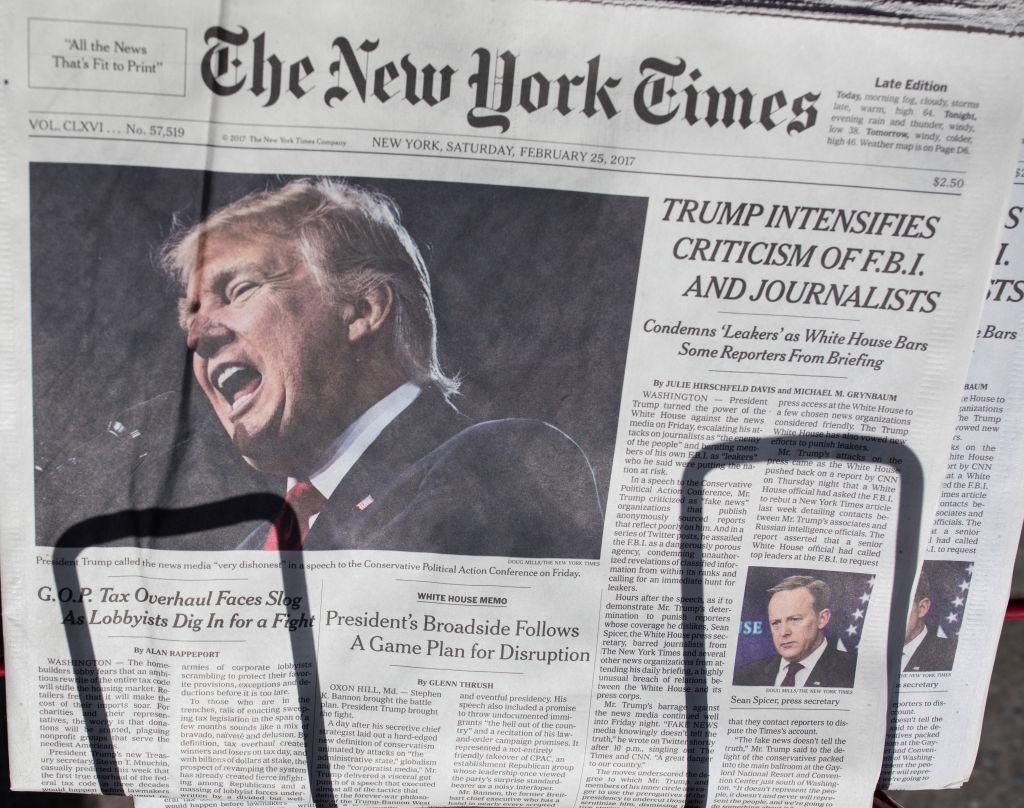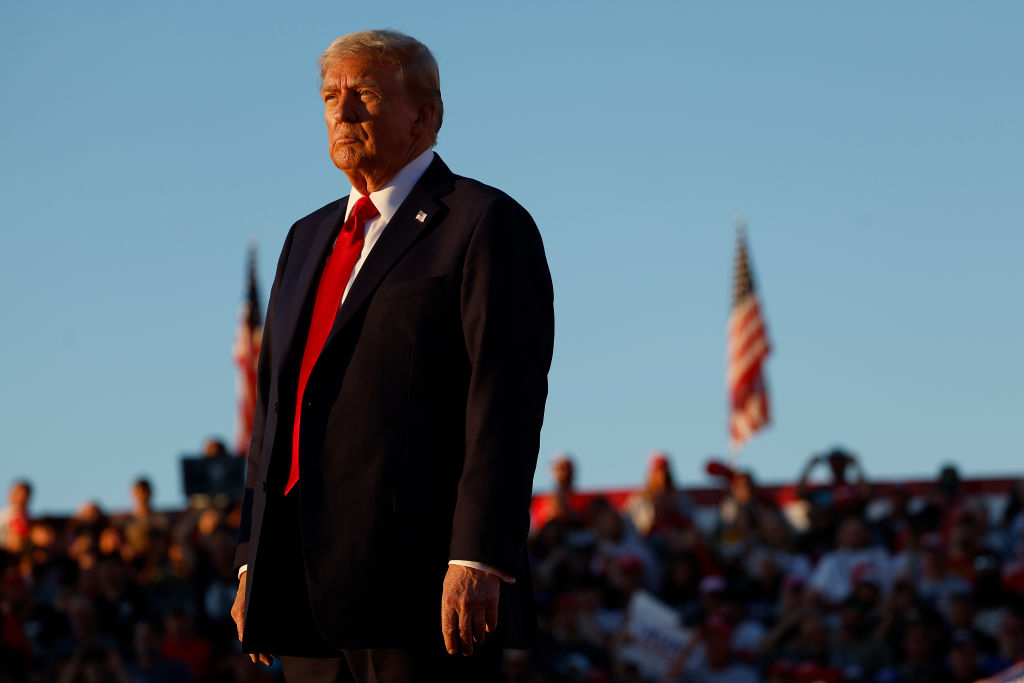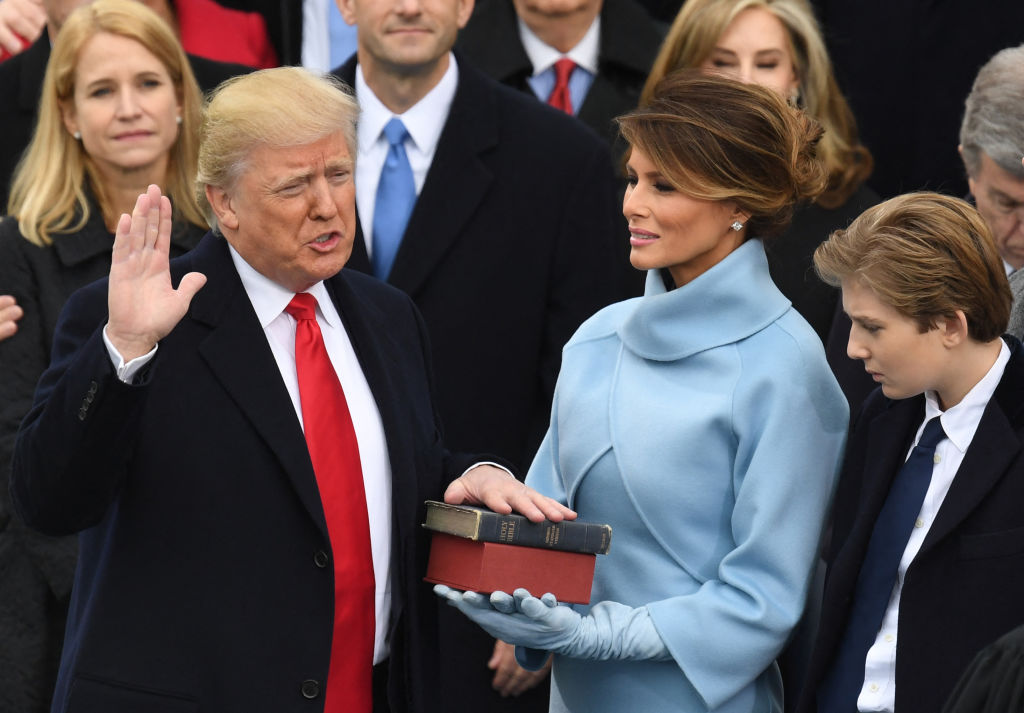He should fortify and restore democracy.
How Trump Can Win the Transition
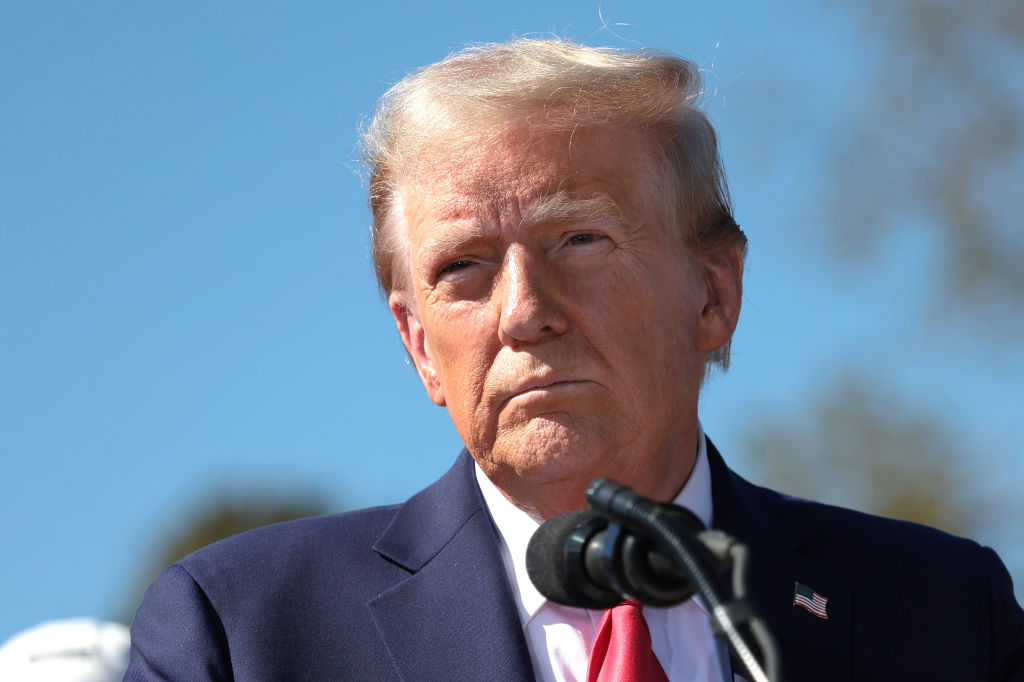
He must not let the swamp stymie his agenda.
I am less concerned than Dan McCarthy about the policy direction of a second Trump term. In particular, Trump is a known quantity with known priorities and values that he keeps returning to, and policy is downstream from operations.
I was very pleased when Robert F. Kennedy Jr. endorsed Trump. When RFK publicly recounted portions of private conversations he had with Trump, I was happy to hear of Trump’s derision of “neocons.” Here is validation that Trump behind the scenes is often stronger on policy than Trump on the campaign stage. Whatever compromises Trump apparently makes—there is, after all, a general election to win—his instincts are right on key issues like trade, foreign policy, and immigration.
This perhaps helps explain the incredible distraction of the Heritage Foundation’s “Project 2025.” We know that Project 2025 is not Trump’s, so his attacks on it are completely understandable. For one, the buck on policy and personnel stops with Trump, and it’s insulting to suggest otherwise. For another, the messaging from Heritage has been all over the place (to say nothing of the internally inconsistent book version of Project 2025). While it likely didn’t scare the GOP base, it could have scared marginal voters, and it certainly enabled the Left (and probably Heritage) to massively fundraise. Project 2025 didn’t have to be a liability, but Heritage’s managerial choices made it one. My overall concern isn’t what Trump will do when he wins—my concern isn’t even that he will win. As Jason Miller noted, in the home stretch, a campaign is about winning each day, and Trump seems to be doing just that. But when he wins, he has to turn that win into governance. My concern is for the things Trump needs to avoid doing.
Trump should not:
Leave D.C. and fundraise following an election-night win. This isn’t to say Trump can’t do occasional rallies after November 5. Of course he should, and he likes doing them. But after his historic win in 2016, Trump spent much of November and December on the road, leaving the transition to the swamp. That cost him more than I can recount here: nearly every Trump loyalist has stories of the McConnell-Ryan Beltway machine seizing control early on. Raising a few hundred thousand dollars isn’t worth an entire cabinet agency.
Trust the General Services Administration. Under the Presidential Transition Act and subsequent legislation, Congress provides money and federal agency resources to winning campaigns for a transition. But again, in 2016 the General Services Administration (really the property manager for the federal government) served as a conduit of information on the Trump campaign and helped kick off the Trump-Russia hoax.
Treat protests with kid gloves. Trump never “locked her up.” Hillary is still at large. He was relatively pacific with the BLM rioters in mid-2020. And there’s no risk that Trump will be draconian with the rioters Kamala is pre-loading every time she or the media call Trump a “threat to democracy.” In fact, a lame-duck President Biden will undoubtedly do almost nothing to protect Americans when the Left’s rage is unleashed on Trump supporters across the nation when he wins. Trump should signal that prosecutions will be coming for those who break the law (and the albatross of January 6 won’t be there to stop him). Stay firm.
Outsource staffing. While the Trump team should avail itself of databases and vetting done by various groups, it should conduct its own background checks (it should not trust agencies, the DOD, or the FBI), and trusted loyalists should be at the top of the hiring list. I’d frankly prefer someone heading this project who doesn’t have any policy preferences so long as he realizes that he’s channeling Trump, and not developing an independent power base or blocking appointments based on vague “concerns.” We’re going to need hundreds, even thousands, of appointees, including first-time appointees and many from outside D.C. or politics. You can teach policy, but you can’t teach loyalty.
Operate in a piecemeal fashion. The strategic policy goal of Trump’s second administration should be “shock and awe.” Weak appointees and cabinet secretaries tend to grow a spine in a group (what’s known as the “Spartacus Effect”), and the more firm policies implemented at the height of Trump’s mandate in the first 100 days, the more habituated to strength his people will be. Any government-wide personnel reform is going to be met with grumbling even by Trump’s own leadership at agencies, and “everyone else is doing it” is probably the only way to build momentum. This goes for policies of White House control as well. I’ve heard many ideas floated involving White House choices for staff at agencies—but this only works if there are no exceptions, and if Trump staff are empowered, not overruled.
Work sloppily and be unprepared for losses. Trump needs to go hard, but as we saw with the early 2017 immigration actions, there are some processes that can’t be circumvented. If Trump loses in court, he needs to be prepared to occasionally go full Andrew Jackson. The Biden Administration has been illustrative on this point. With student loans, COVID funds, Jack Smith being declared a private citizen and not a DOJ attorney, and many other issues, when the Biden Administration loses, they do the same thing, but in a different way, or they simply ignore a court ruling if there’s no teeth to it. Trump can learn from this. A loss isn’t always a loss but a comms opportunity to do more—and to go harder.
Leave his people high and dry. Loyalty goes both ways. We’ve seen the political targeting of Trump and his staff and lawyers, starting with the Russia hoax and continuing to IG complaints and more. Trump’s greatest strength—his comms genius—is a liability if he lets comms lead when his people are targeted. He will be targeted, they will be targeted, and the American people are smart enough to know that the targeting is fake. So, when a hit piece comes out, the reflex should be to ignore it, not fire the staffer.
Follow “norms” that polite people declare to be norms. Trump was the most norm-following president in my lifetime. I cannot count the number of unnecessary Obama holdovers who remained in place. Biden, on the other hand, very much cleaned house—I was removed from my presidentially-appointed board almost immediately after he was sworn in, having replaced an Obama holdover mere months earlier. Biden also removed many appointments, possibly in violation of various statutes, in a vindication of the “unitary executive” that Trump can emulate. In another “unitary executive” move, Biden removed various acting officials, in violation of the Vacancies Reform Act, on Day One.
Trump can comply with the law by finding his own holdovers at various agencies and promoting them—but also take a cue from Biden and all the left-wing orgs that in 2020 published playbooks that suggested how an administration can operate with a deft hand. This broad point applies to grants and appropriations as well.
The Biden Office of Legal Counsel (OLC) at the DOJ has reversed legal opinions multiple times: this might be shocking to the Federalist Society crowd, but a Trump OLC could do the same. And that goes for settling cases as well. Obama had Pigford, but the Deep State under Trump failed even to settle the racial hiring air traffic controller case. No matter how many times Jennifer Rubin screams “norms!”, a class action by servicemembers who went AWOL for refusing the vax could be settled by Trump rather than fought in court.
Trust the experts. This means not trusting Office of Management and Budget staff or lawyers (trust me, I know: I’m a lawyer). There isn’t a cost-benefit analysis in the entire government that doesn’t rest on value judgments and policy choices, or a legal objection that can’t be worked around to get roughly to the same place. Regulatory and legal staff both serve the same purpose: not to say no like some guardian of secret magic but to provide information, options, and risk assessment. It was experts who scuttled many doable Trump policies, who bungled the COVID PR and response, and who continue to play Chicken Little with the second term of a man who already had a successful first term.
Forget his legacy. There is going to be a Trump legacy, especially if he wins bigly. I believe he has to shore up American sovereignty and cement the GOP as the working-class party in America. The legacy Trump envisions should serve as the unavoidable strategic goal for every decision from top to bottom. As with 2016, the Deep State and the media will try to distract from this, but Trump’s eye must remain on the prize.
The American Mind presents a range of perspectives. Views are writers’ own and do not necessarily represent those of The Claremont Institute.
The American Mind is a publication of the Claremont Institute, a non-profit 501(c)(3) organization, dedicated to restoring the principles of the American Founding to their rightful, preeminent authority in our national life. Interested in supporting our work? Gifts to the Claremont Institute are tax-deductible.
Trump must break with the status quo—and his own inclinations.
There’s one fundamental task Trump can still do for us.
President Trump should seek the reversal of New York Times v. Sullivan.
His agenda must revolve around recovering the practices of self-government.
He needs to learn from Reagan and hit the ground running.

